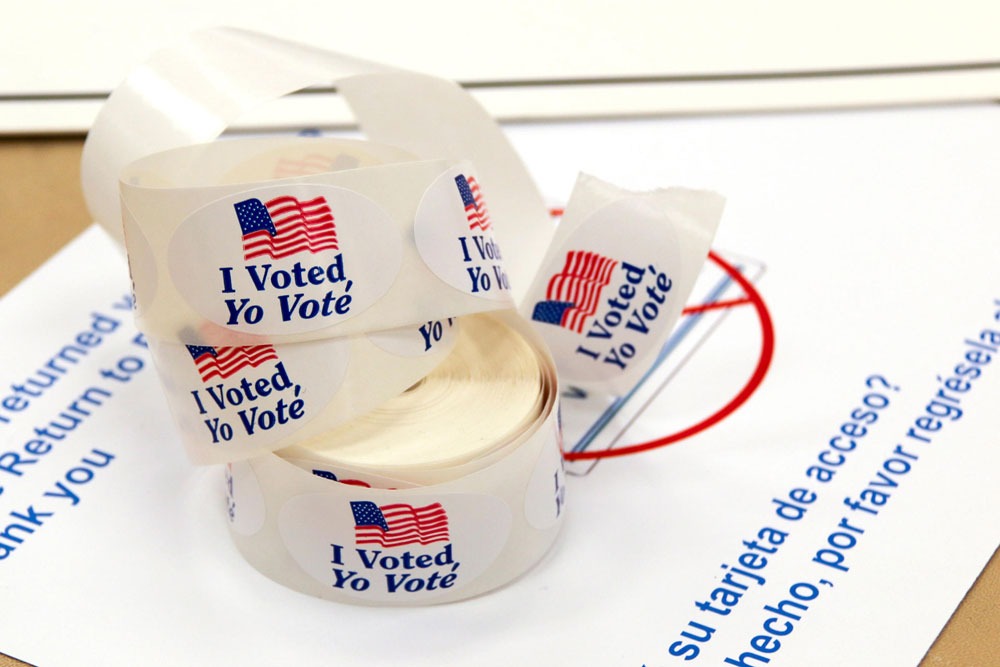
October 16, 2020; The Sentencing Project, Vox, and CNN “Politics”
Voting is power. Since our nation’s earliest days, those seeking suffrage rights have faced a regular struggle against those who have wished to restrict the franchise—in particular, keeping people of color, women, and poor people from the ballot box.
Restricting the right of former felons to vote has lately become a flashpoint. Last week, NPQ’s Steve Dubb, writing for NPQ, spotlighted a Sentencing Project report. Even as the number of citizens who cannot vote because they have been convicted of a felony showed a modest decline since 2016, it’s still 2.27 percent of the total US voting-age population. Of these, four million people have completed their sentences but live in states that prevent them from voting because of their pasts.
More telling is the disproportionate impact of these disenfranchisement policies on communities of color. “One in 16 African Americans of voting age is disenfranchised, a rate 3.7 times greater than that of non-African Americans…we can conservatively estimate that over 560,000 Latinx Americans or over two percent of the voting eligible population are disenfranchised.”
Because states set their own rules, the weight of this restriction falls unequally across the nation. Florida stands out as one state where the combination of an entrenched power structure and the increasingly conservative federal Court system can be seen at play. In 2018, Florida voters overwhelmingly approved a constitutional amendment retuning the franchise to those who had met the conditions of their sentence, but a recent state law circumvented this intent by mandating payment of all fees and court costs as a pre-condition. According to the Sentencing Project, this modern-day poll tax was stunningly effective:
Nearly 900,000 Floridians who have completed their sentences remain disenfranchised, despite a 2018 ballot referendum that promised to restore their voting rights. Florida thus remains the nation’s disenfranchisement leader in absolute numbers, with over 1.1 million people currently banned from voting—often because they cannot afford to pay court-ordered monetary sanctions or because the state is not obligated to tell them the amount of their sanction.
The 11th Circuit of the US Court of Appeals overruled lower court rulings that barred the state from enforcing its new law and allowed former felons to register and vote in primary elections. The Court, heavily weighted by a large number of justices appointed by Republican presidents, held that the payment requirements were permissible even though the state had no system that would let former felons know just what was owed.
Sign up for our free newsletters
Subscribe to NPQ's newsletters to have our top stories delivered directly to your inbox.
By signing up, you agree to our privacy policy and terms of use, and to receive messages from NPQ and our partners.
As Justin Levitt, a voting law expert at Loyola Law School in Los Angeles and former deputy assistant attorney general for civil rights in the Obama administration, described it to the New York Times, “Florida has a right to disenfranchise you because all terms and conditions must be met, but we’re not telling you which terms are left to meet? That’s Lucy pulling the football away from Charlie Brown. And there’s no law in Lucy pulling the football away. That’s just cruelty.”
Still, with this green light, Maria Matthews, Florida’s elections director, emailed local election officials last week to tell them “they would begin to receive files on convicted felons who ‘whose potential ineligibility is based on not having satisfied the legal financial obligations of their sentence.’” She also encouraged officials to “act on” information they received from outside sources about potentially ineligible registered voters.
Taking this action only weeks before Election Day prepares the field for a post-election legal battle. As Leon County Supervisor of Elections Mark Earley in Tallahassee explains, even with this information in hand, a number of different requirements could keep the rolls from being wholly vetted before November 3rd. “It’s possible,” Early says, “that if felons with court debts end up voting, their ballots could be challenged after the election,” contributing to the chaos a challenged result will bring.
The American Civil Liberties Union, the Brennan Center for Justice, and the NAACP Legal Defense and Educational Fund, placed the actions of Florida’s state government in broader context in a joint statement: “Florida’s proposed action is simply an attempt to scare people with felony convictions away from voting and constitutes voter intimidation.”
This struggle will also reach the US Supreme Court’s docket soon. Earlier this month, the Supreme Court agreed to review lower court decisions that found two Arizona statutes limiting voting practices used heavily by Native, Latinx, and Black voters were violations of Federal law. As described by Vox, the lower courts had thrown out the two statues because of “uncontested evidence…that minority voters in Arizona cast [out-of-precinct] ballots at twice the rate of white voters. And [Latinx] and Native American voters are especially likely to rely on a third party to ensure that their ballot is cast.”
If Judge Amy Coney Barrett is confirmed as a justice, she will join a court primed to further empower states like Florida and Arizona in their efforts to restrict voting. Section 2 of the Voting Rights Act provides two separate protections against voter discrimination. Being challenged is the Voting Rights Act’s prohibition of “any state law that ‘results in a denial or abridgement of the right of any citizen of the United States to vote on account of race or color.’”
Florida’s ability to restrict former felons’ right to vote may have an immediate impact on this year’s election. If the US Supreme Court agrees with Arizona and upholds its laws, every state will have greater latitude to build its election laws in ways that protect those in power and keep out those who have been marginalized.—Martin Levine












